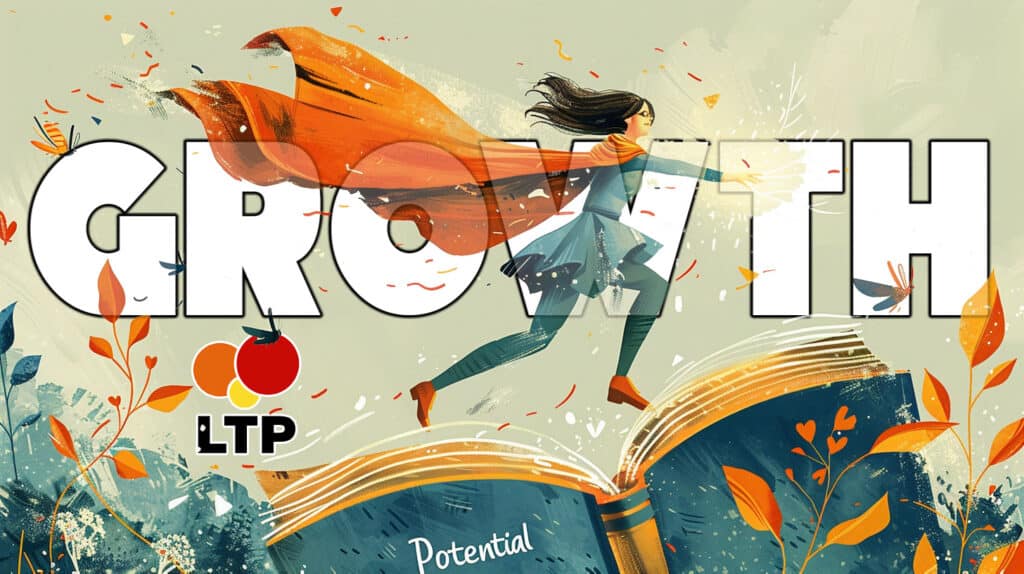


Do you ever feel stuck in your personal growth journey, unsure of how to overcome challenges that hold you back?
As individuals seeking self-improvement, we often face daunting personal growth challenges that test our resilience and determination.
In this article, we explore the importance of personal growth and dive deep into overcoming common obstacles. I, as your guide, bring insights and strategies to help you navigate these challenges with confidence.
We’ll tackle ten key challenges—from managing self-doubt to finding work-life balance—and provide actionable tips and strategies to conquer them effectively.
Join me in confronting these challenges head-on. Together, we’ll unlock your potential and pave the way for personal growth and fulfillment.
By the end of this journey, you’ll have gained valuable insights and practical tools to transform challenges into opportunities for growth. Your path to a more empowered and fulfilling life begins now.
- Importance of Personal Growth
- Personal Growth Challenges
- 1. Overcoming Self-Doubt
- 2. Managing Fear of Failure
- 3. Finding Purpose and Meaning in Life
- 4. Developing New Skills and Abilities
- 5. Managing Stress and Anxiety
- 6. Work-Life Balance
- 7. Self-Confidence and Self-Esteem
- 8. Dealing with Setbacks and Obstacles
- 9. Healthy Boundaries in Relationships
- 10. Changing Negative Habits and Behaviors
- Tips for Confronting Challenges
- Personal Growth Challenges: A Recap
Here are 10 personal growth challenges:
- Overcoming Self-Doubt: Building self-confidence and trust in your abilities.
- Managing Fear of Failure: Embracing setbacks as opportunities for growth.
- Finding Purpose and Meaning: Clarifying goals and aligning actions with personal values.
- Developing New Skills: Stepping out of comfort zones to acquire new abilities.
- Managing Stress: Cultivating resilience and coping strategies.
- Work-Life Balance: Establishing boundaries for a healthy lifestyle.
- Self-Confidence: Strengthening self-esteem and a positive self-image.
- Dealing with Setbacks: Building resilience to overcome obstacles.
- Healthy Relationships: Setting boundaries and fostering mutual respect.
- Changing Habits: Breaking negative patterns and fostering positive behaviors.
See also Responsibilities: Tips for Streamlining Chores and Administration
Importance of Personal Growth

Personal growth is vital for individuals seeking self-improvement and enhanced mental health and wellness. It encompasses various aspects such as self-awareness, emotional intelligence, and skill development.
Engaging in personal growth initiatives enables individuals to become a better version of themselves.
By overcoming challenges and actively pursuing self-improvement, individuals can boost their confidence and resilience, thus being better equipped to navigate life’s complexities. Personal growth often involves incorporating self-care practices, such as mindfulness and gratitude challenges, into daily routines.
These efforts not only help mental health but also contribute to overall well-being. Through consistent self-reflection and personal development, individuals can cultivate a deeper understanding of themselves and their aspirations, leading to a more fulfilling and purposeful life.
Thus, prioritizing personal growth is essential for individuals seeking to lead happier, more fulfilling lives.
Here is a list of the importance of personal growth:
- Self-Awareness: Enhances understanding of oneself.
- Goal Achievement: Helps in setting and achieving personal and professional goals.
- Adaptability: Improves ability to handle change and adversity.
- Skill Development: Encourages learning new skills and knowledge.
- Confidence Boost: Builds self-esteem and confidence.
- Health and Wellbeing: Promotes mental and emotional well-being.
- Better Relationships: Enhances communication and interpersonal skills.
- Career Advancement: Facilitates professional growth and opportunities.
- Life Satisfaction: Increases overall happiness and fulfillment.
- Resilience: Strengthens ability to overcome challenges and setbacks.
Personal Growth Challenges

Personal growth challenges are crucial aspects of self-improvement and fulfillment. They often involve stepping out of our comfort zone and facing fear and change.
One challenge is overcoming self-doubt and fear of failure, which can hinder progress.
To manage this, it’s essential to focus on building confidence and self-belief through practices like positive affirmations and setting achievable goals. Another challenge is finding the balance between pushing oneself to grow while also taking time for rest and self-care.
Creating a self-care planner or incorporating activities like exercise, writing, or joining fun hobbies can help maintain this balance. Additionally, stepping out of our routines and trying new experiences can expand our perspectives and propel us along the path of personal growth.
Following challenges as opportunities for learning and growth is a crucial mindset shift in navigating the journey toward becoming our best selves.
Here are 10 common personal growth challenges:
1. Overcoming Self-Doubt
Overcoming self-doubt requires a deeper understanding of oneself and a commitment to self-growth. Initiating a growth mindset can shift perceptions of failure from setbacks to valuable insights.
Challenge limiting beliefs and fears by tackling them head-on, one step at a time. Progress, even small steps, can inspire confidence and lead to a better you. Seek support from mentors, friends, or professionals to gain valuable perspectives and problem-solving skills.
Consider failure as a natural part of the learning process, recognizing that each setback is an opportunity for growth. By challenging ideas and seeking new skills, self-doubt can be transformed into a catalyst for personal development and empowerment.
Here are 6 tips on how to overcome self-doubt:
- Track Achievements: Keep a journal of your successes and review it regularly.
- Learn New Skills: Continuously develop your abilities to build confidence.
- Visualize Success: Picture yourself achieving your goals.
- Limit Comparisons: Focus on your journey instead of comparing yourself to others.
- Accept Imperfection: Embrace mistakes as part of growth.
- Engage in Positive Self-Talk: Encourage yourself with optimistic internal dialogue.
2. Managing Fear of Failure
Managing the fear of failure is essential for personal growth and resilience. One strategy is to focus on building resilience by reminding oneself of past successes and strengths through self-care reminders.
Additionally, staying committed to personal growth goals and challenging oneself with new experiences, such as trying a new recipe or hobby, can help shift the focus from failure to progress.
Viewing failure as a stepping stone toward becoming a better version of oneself fosters confidence and maintains focus on the future. By considering failure as a natural part of the learning process, individuals can overcome fear and continue their journey toward growth and success.
Here are 8 tips for managing the fear of failure:
- Acknowledge Your Fear: Recognize and accept that fear of failure is natural.
- Set Realistic Goals: Break down large goals into smaller, achievable steps.
- Embrace Mistakes: View mistakes as opportunities to learn and grow.
- Prepare for Challenges: Plan and prepare for potential obstacles.
- Practice Self-Compassion: Be kind to yourself and avoid harsh self-criticism.
- Visualize Success: Imagine positive outcomes to build confidence.
- Take Action: Start with small actions to build momentum and reduce fear.
- Reflect on Past Successes: Remind yourself of previous achievements to boost confidence.
See also Life Planning: Setting Goals, Defining Values, and Finding Purpose
3. Finding Purpose and Meaning in Life
Finding purpose and meaning in life is a journey of self-discovery and personal growth. One avenue toward purpose is through self-care and building resilience. By money management and prioritizing healthy habits, individuals can create a stable foundation for their lives.
Exploring new interests and learning opportunities, such as mastering a new language or joining like-minded communities, can also provide a sense of fulfillment.
Additionally, setting daily challenges, such as waking up an hour earlier or practicing self-affirmations, can help a sense of accomplishment and direction.
Ultimately, finding purpose involves aligning one’s actions with their values and passions, creating a meaningful and fulfilling life journey.
4. Developing New Skills and Abilities
Developing new skills and abilities is an essential part of personal growth and development. Learning a new language opens doors to communication and cultural understanding while mastering a musical instrument helps creativity and discipline.
Engaging in sports or fitness activities not only improves physical health but also promotes mental health and resilience.
Incorporating practices like 10 minutes sleep meditation and self-love checklists enhances focus and self-awareness. Each new skill learned becomes an investment in personal development, contributing to a journey of self-improvement and confidence-building.
Challenges like gratitude challenge inspire ideas and processes, leading to success and personal growth. Following these challenges is crucial for continual growth and lifelong learning.
Here are 10 options for developing new skills and abilities:
- Learning a Musical Instrument
- Taking Up a New Sport
- Practicing a New Language
- Cooking and Baking New Recipes
- Engaging in Artistic Activities (Drawing, Painting, etc.)
- Attending Workshops and Seminars
- Public Speaking and Communication Skills
- Photography and Videography
- Writing and Blogging
- Reading Books and Articles
5. Managing Stress and Anxiety
Managing stress and anxiety effectively is essential for navigating a personal growth journey.
One method is cultivating a growth mindset, viewing challenges as opportunities for learning and growth rather than obstacles.
Setting achievable goals and breaking tasks into smaller steps can help overcome productivity challenges and reduce overwhelm. Additionally, practicing self-care activities such as mindfulness, exercise, and spending time in nature can promote mental well-being.
Engaging in activities outside of one’s comfort zone brings confidence and provides valuable insights into one’s own challenges.
By approaching stress and anxiety with a growth mindset and implementing self-care practices, individuals can deepen their understanding of themselves and enhance their overall success on their personal growth journey.
Here are 10 tips for managing stress and anxiety:
- Practice deep breathing techniques.
- Try mindfulness meditation daily.
- Engage in regular physical exercise.
- Ensure you get enough quality sleep.
- Limit caffeine and alcohol intake.
- Set realistic goals and prioritize tasks.
- Stay connected with supportive relationships.
- Manage your time effectively.
- Eat a balanced diet with whole foods.
- Take breaks from screens and relax.
6. Work-Life Balance
Finding Work-Life balance and personal goals is vital for overall well-being and success. One effective method is to prioritize activities that bring fun, joy, and fulfillment, integrating them into daily routines.
Starting the day with a fun morning ritual or dedicating time each week to a new hobby can rejuvenate spirits and inspire creativity. Another approach is the “one thing” technique, focusing on accomplishing one meaningful task each day.
Gradually increasing good habits, like exercise, saving money, or learning opportunities, can create a foundation for balance. Additionally, seeking support from friends or joining groups with similar challenges can provide motivation and accountability on the journey toward a balanced life.
7. Self-Confidence and Self-Esteem
Building self-confidence and self-esteem is a journey that requires consistent effort and self-reflection. One method is to surround oneself with like-minded individuals who offer support and encouragement.
Participating in a 30-day challenge, such as a gratitude challenge or a self-care challenge, can help personal growth and boost confidence.
Additionally, becoming a morning person and starting the day with positive affirmations can set a confident tone for the day ahead. Considering failure as a natural part of learning and seeking support from trusted friends or mentors are also valuable strategies for building resilience and self-assurance.
Through these practices, individuals can gradually cultivate a stronger sense of self-confidence and self-worth.
8. Dealing with Setbacks and Obstacles
Dealing with setbacks and obstacles is an inevitable part of life and personal growth. When faced with challenges, it’s important to approach them with resilience and a growth mindset.
One method is to break down the challenge into smaller, manageable tasks, making it less daunting.
Additionally, seeking support from friends, and family, or joining a community of like-minded individuals can provide encouragement and new perspectives. Engaging in self-care activities, such as meditation, exercise, or creative hobbies, can also help maintain mental health and perspective during difficult times.
Imagine setbacks as opportunities for learning and growth can ultimately lead to greater self-improvement and resilience in the face of future challenges.
Here are 10 tips for dealing with setbacks and obstacles:
- Stay Calm and Assess: Take a deep breath and assess the situation objectively.
- Focus on Solutions: Shift your focus from the problem to potential solutions.
- Seek Support: Reach out to friends, family, or mentors for advice and encouragement.
- Learn from Mistakes: Reflect on what went wrong and use it as a learning opportunity.
- Stay Persistent: Keep working towards your goal despite setbacks.
- Adjust Your Plan: Modify your approach or strategy if necessary.
- Stay Flexible: Adapt to changes and unforeseen circumstances.
- Positive Mindset: Focus on the positives and believe in your ability to overcome challenges.
- Practice Self-Compassion: Be kind to yourself during difficult times.
- Stay Patient: Understand that setbacks are a natural part of growth and success.
9. Healthy Boundaries in Relationships
Developing healthy boundaries in relationships is vital for maintaining emotional well-being and helping mutual respect in the love world. One method is setting aside time each morning to reflect on personal values and affirmations, which can build confidence and self-awareness.
Additionally, joining supportive communities or seeking guidance from a best friend can provide valuable insights and encouragement.
It’s essential to prioritize self-growth by engaging in activities that bring joy and fun, even during challenging moments. Setting clear boundaries and staying committed to them, is a stepping stone toward healthier relationships, allowing individuals to express their needs and maintain balance in their interactions with others.
10. Changing Negative Habits and Behaviors
Changing negative habits and behaviors can be a challenging but rewarding endeavor in our journey of self-growth. One effective method is to challenge ideas with self-care challenges, such as incorporating a morning routine or joining a supportive community.
You must stay committed to the challenge and gradually increasing its difficulty can help build confidence and self-care.
Additionally, engaging in self-growth activities like reading self-love books or dedicating time each day to personal development can provide valuable learning opportunities and support us in breaking free from negative patterns, ultimately leading to a more fulfilling and positive life journey and world.
Tips for Confronting Challenges

Confronting challenges on the road to self-improvement is a vital aspect of personal growth. One effective method is to challenge oneself with new ideas or activities regularly.
This could involve setting self-care challenges or personal growth challenges, gradually increasing the difficulty over time.
Following each challenge as a learning opportunity allows for continuous self-growth. Additionally, joining the challenges with others can provide support and motivation along the way.
Whether it’s committing to a daily self-care routine, self-care night checklist, or tackling a new skill each day, confronting challenges helps resilience and contributes to a more fulfilling life journey. By following challenges head-on, individuals can unlock their full potential and continue evolving on their path to self-improvement.
Here are 11 tips for confronting challenges:
- Acknowledge the challenge and its impact.
- Define the problem clearly.
- Break it down into smaller tasks.
- Set specific goals.
- Gather necessary resources.
- Develop a detailed action plan.
- Take proactive steps forward.
- Stay flexible and adapt.
- Seek help and advice when needed.
- Monitor progress closely.
- Learn from setbacks and adjust.
See also Career and Wealth: Crafting a Fulfilling Career Path and Financial Wellness
Personal Growth Challenges: A Recap
In conclusion, personal growth challenges are integral to self-improvement and development. By gradually increasing the difficulty of challenges and embracing failure as a learning opportunity, individuals can propel themselves forward on the path of self-growth.
Whether it’s self-care challenges, self-improvement challenges, or personal growth challenges, each presents an opportunity for growth and development. Join these challenges with others, and bring a sense of community and support, making the journey more fulfilling.
Ultimately, confronting challenges in life allows individuals to unlock their full potential and lead a more purposeful and meaningful life. Having these challenges as opportunities for self-growth enables individuals to become the best versions of themselves.


